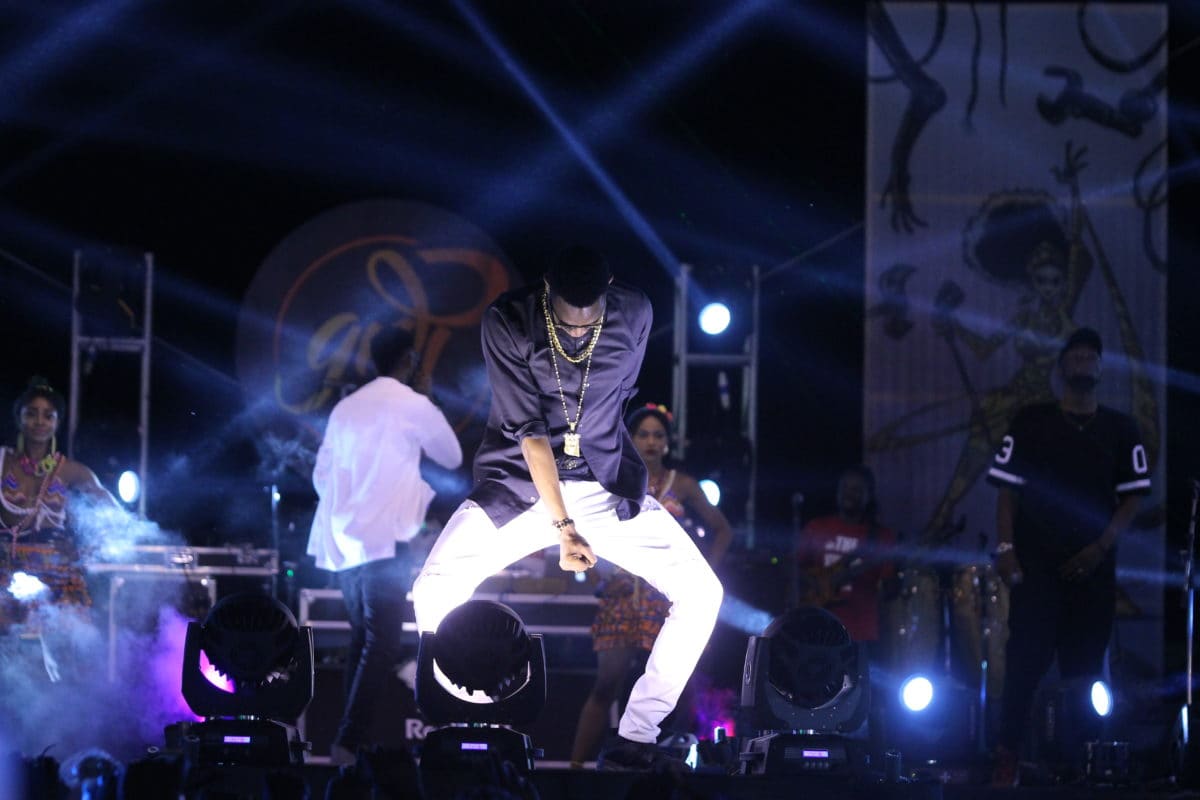The whole ‘Afrobeats’ thing
Afrobeats is broadly what most people think when they try to define black music in the UK. But it is hard to pin down.

D'Banj during a performance.
Two recent features in mainstream British media turned out to be enough to spur some debate about the so-called “Rise of the Afrobeats.” The Guardian interviewed DJ Abrantee (quoting him as having coined the term, which Abrantee later denied, but that didn’t stop MTV Iggy from copying the interview), while BBC Radio aired a one-hour show advertised as “your complete guide to Afrobeats.” Both features came with popular music plugs but also with some ludicrous quotes, such as “Nigerians are just hustlers on a high level … A Kenyan you can just walk by, he doesn’t exude that super star flair” or “male African dancers are much better dancers than the female Africans.” Other gems included: “African music is just beginning, just starting now;” “Africa’s a place full of love, despite it being depicted as war-torn;” and “these songs are not about sex, but about love;” etcetera).
Even from the outside looking in, one can recognize a persistent genre obsessed hype machine around Black music in the UK. We’re familiar with wider debates around the practice in the world music industry in general so we won’t spend too much time explaining why the “Afrobeats” name is somewhat irresponsible and misleading (adding an “s” to Afrobeat?). As for the BBC special, DJ Edu, the host of the show, later clarified that he wanted to “package African music to the West who loves a story” but it got us thinking.
Those of us who are interested in promoting music from the African continent around the world must be wary of the reflex to lump music from diverse places and historical contexts into one new category. If we want to be pan-African, then let’s be pan-African, but let’s not pave over local identities and histories solely for the sake of an easier marketing plan for the West (that “loves a story”). Plus, scenes in less equipped areas will never be able to compete with the giant industries in places like Ghana and Nigeria. If practices like this continue, too many local and national scenes will fall victim to unfair market competition and there will be a flattening of culture.
Another problematic claim that has emerged through the dialogue is that the UK is “leading the way” in the popularization of African music in the world. While we’ll admit that the UK’s large immigrant communities certainly play a role in the popularization of African music in the British mainstream, the problem with a UK centered view is that it ignores the waves that popular African artists have made in other places. Paris centered explorations with Coupe Decale and Kuduro have made a significant impact in France and Portugal, but also in Brazil, the U.S., Spanish speaking America and other parts of the Caribbean (Kuduro has been getting play at Brooklyn Carnival for the last couple years.) Maybe Don Omar isn’t as big as Kanye to many in the English speaking world, but he’s undoubtedly bigger in other parts of the world. So when he jumps on a track called Danza Kuduro, it holds mainstream weight.
Lastly, perhaps the biggest worry is how in the wake of Kanye signing D’Banj, people’s focus has seemed to center around getting corporate mainstream attention in the US. While that’s also part of spreading the music, since when did the US mainstream become the end-all watermark of success for African artists? We’ve personally always believed in de-centering global creativity away from the US and Europe, and we think that’s the real story here. It’s not “Afrobeats” in itself, but what “Afrobeats” could allow.



